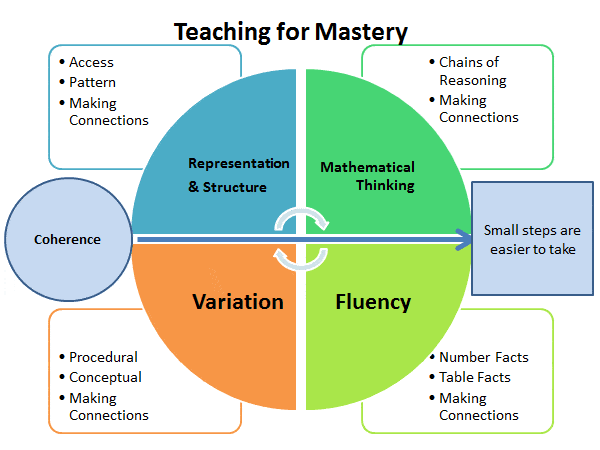School Improvement
School Improvement Priorities 2024 - 2025
Every school has a School Improvement Plan. Our plan reflects priorities highlighted by parents, staff, governors and children.
The purpose of our School Development Plan is to:
- provide a strategy for the implementation of the school's aims;
- enable the school to plan for the improvement of the quality of teaching and learning;
- enable the school to focus on raising standards;
- provide a means of managing change in a planned and systematic manner;
- link the aims of the school and financial planning to the future needs of the school;
- establish how the school will measure its own efficiency and effectiveness;
- illustrate how successfully the school achieves value for money;
- provide a sound, but flexible and adaptable planning cycle, spanning at least 3 years;
- have an accountable framework that enables the school to provide information to others and explain and justify its decisions in the context of the school's particular circumstances and needs
- show a comprehensive and co-ordinated approach to all aspects of planning, implementing, monitoring and evaluating developments;
Priority 1
Develop Reading
At Highfield Primary School, we are dedicated to nurturing a love for reading as part of our core mission. This year, we have made reading a central focus of our school development priorities because we recognise its transformative impact on all aspects of learning and personal growth. Reading is not only a foundational skill; it is the key that unlocks future learning, broadens perspectives, and fosters lifelong curiosity.
The Importance of Early Reading
We place a special emphasis on early reading, as research consistently shows that children who develop strong reading skills at a young age are more likely to succeed academically and build positive attitudes towards learning. Early reading skills lay the groundwork for comprehension, critical thinking, and communication—abilities that extend well beyond the classroom. By supporting early reading, we help children develop confidence, independence, and a deep-rooted appreciation for books and stories.
Priority 2
Improve Outcomes in Maths
Whilst our children perform well in end of year tests, we continue to aim to further improve maths. We will maintain our high standards of maths teaching.
At Highfield, we are prioritising maths because we recognise it as a critical foundation for academic success and future opportunities. Strong mathematical understanding is essential not only for academic achievement but also for problem-solving, logical thinking, and practical life skills. Our goal is to ensure that every child develops the confidence and competence to excel in maths.
We are committed to continuing as a school that develops maths mastery, an approach that deepens understanding and ensures that all pupils, regardless of background or ability, have the opportunity to succeed. The key principles of the maths mastery approach include:
• Fluency: Ensuring pupils have a deep understanding of mathematical concepts, enabling them to recall and apply knowledge rapidly and accurately.
• Reasoning: Encouraging children to think critically, explain their reasoning, and justify their solutions, which fosters a deeper understanding of mathematical ideas.
• Problem-solving: Equipping pupils with strategies to approach and solve a range of mathematical problems, helping them apply their learning to real-world contexts.
• Conceptual understanding: Emphasising a deep understanding of key concepts through multiple representations, so pupils can move beyond rote learning to truly grasp the material.
By embedding these principles into our teaching, we are ensuring that maths is not only about learning procedures but about understanding how and why mathematical concepts work. This mastery approach helps all our pupils to develop a love of maths and the resilience to tackle increasingly complex challenges with confidence.
Priority 3
Ensure vulnerable groups make outstanding progress

At Highfield, we are prioritising the progress of children who are eligible for Pupil Premium and those from vulnerable groups because we believe that every child deserves the opportunity to succeed, regardless of their background or circumstances. Ensuring that these children make exceptional progress is central to our commitment to closing the attainment gap and promoting equity in education.
We recognise that children from disadvantaged backgrounds often face additional barriers to learning, and we are determined to provide targeted support to overcome these challenges. By prioritising these groups, we aim to ensure that they not only catch up with their peers but excel and reach their full potential. This focus includes high-quality teaching, tailored interventions, and fostering a supportive learning environment where every child feels valued and capable of success.
Our efforts are backed by research, including findings from the Education Endowment Foundation (EEF), which show that carefully designed interventions and a focus on high-quality teaching can have a profound impact on disadvantaged pupils’ outcomes. At Highfield, we are committed to using evidence-based approaches to ensure that all children, especially those in vulnerable groups, thrive academically and personally.
In order to continue to maintain high standards, we will continue to prioritise the professional development of all staff and leaders to ensure children benefit from the highest quality provision.
Priority 4
Ensure our curriculum is outstanding in all areas
At Highfield, we are dedicated to ensuring that our curriculum is outstanding in all subjects, providing a rich, balanced, and engaging learning experience for all our pupils. To achieve this, we are investing in continuous professional development (CPD) for our subject leaders, equipping them with the skills and knowledge to lead their areas with expertise and confidence.
Our subject leaders will play a key role in strategically monitoring the impact of the curriculum, ensuring that it is effectively delivered and meeting the needs of all learners. By regularly reviewing and assessing the quality of teaching and learning, they will ensure that our curriculum not only meets but exceeds national standards.
Additionally, we are working on developing robust assessment methods in foundation subjects to track and support pupil progress. By refining how we assess learning in these areas, we can ensure that every subject contributes to the overall success and development of our pupils, helping them to achieve their full potential across the curriculum.



